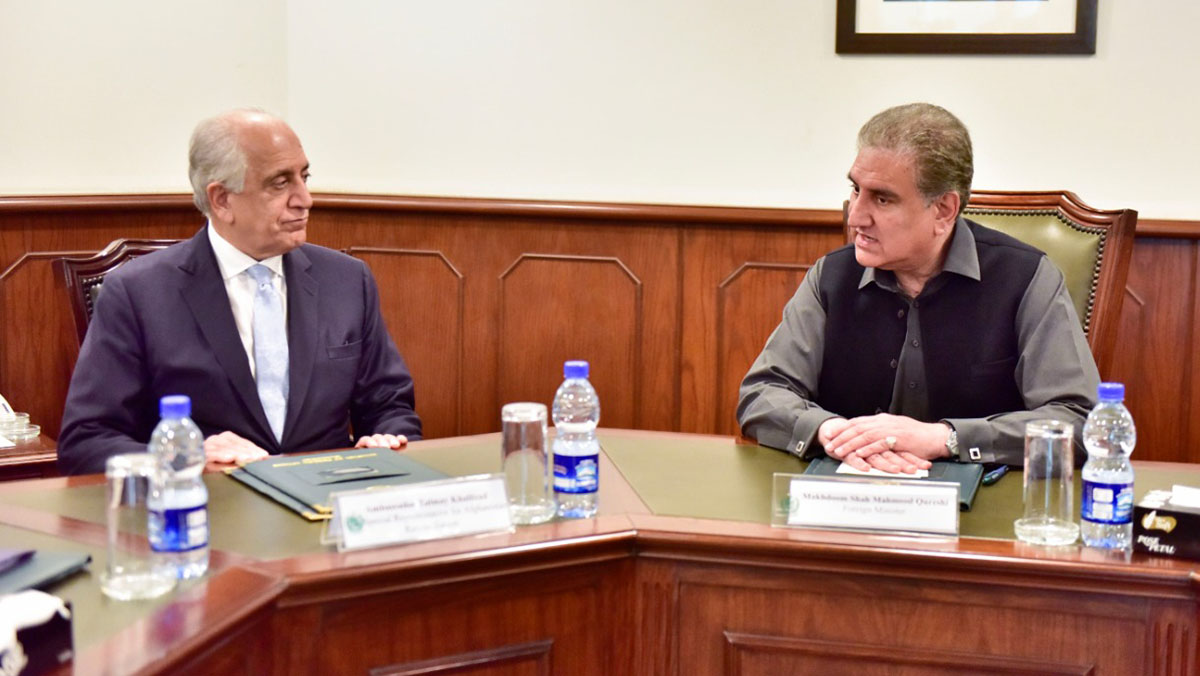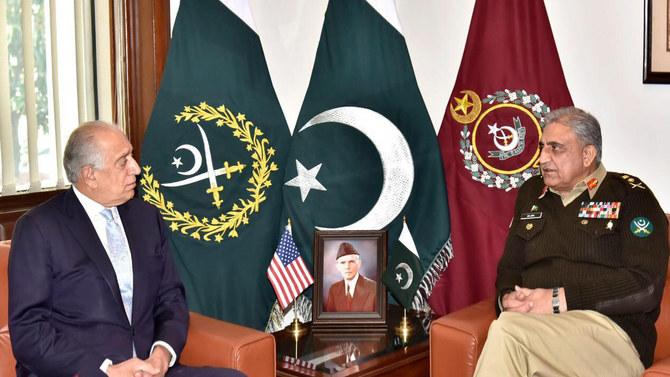KARACHI: Woman investors in Pakistan are “cautiously” looking at the country’s ongoing talks with the International Monetary Fund (IMF) and will buy more shares in companies listed on the bourse, if the negotiations succeed.
Woman investors in Pakistan’s commercial capital of Karachi hope that Islamabad’s negotiations with the global lender for a review of its $7 billion program would end on a positive note, thus allowing the market sentiments to boost.
The Washington-based lender has sent a team of experts, led by Nathan Porter, to see if the South Asian nation is complying with the conditions it has set under its reforms-oriented extended fund facility (EFF).
A successful review would not only lead to the release of about $1 billion to cash-strapped Pakistan, but also open new avenues for investors who have been buying and selling company shares at the Pakistan Stock Exchange (PSX).
“I will be putting more money into the stock market for sure and I would be advising my clients to do the same,” said Saniya Bilal Doni, a 33-year-old CFA charter holder who has been actively investing in Pakistan’s stocks, real estate and gold markets for the last four years.
The mother of two holds a finance degree from the University of Toronto and prefers to make long-term, dividend-based investments in what she called “well performing” banking, real estate, fertilizers and technology stocks that make her portfolio keep growing. Doni though did not quote any numbers to show how big her investment portfolio is.
Having worked for various asset management funds in Canada and Abu Dhabi after completing her graduation in 2013, Doni now is managing her family’s portfolio as well as advising high net-worth individuals on how they should manage their investment portfolios.
She expects more money to come into Pakistan’s economy as a result of a successful IMF review that would help the stocks market increase more.
“All the stocks should technically go up. Yes, that has an impact because as an economy we are unfortunately dependent on IMF’s funding,” she said.
“I am paying attention to all of that, especially as I, you know, make changes to the portfolio, if any, and also if I advise clients.”
Inflation-hit Pakistan has about 350,000 registered individuals who invest in stocks, according to Najeeb Ahmed Khan Warsi, head of online trading at Foundation Securities Ltd.
This number looks dismal given the fact that Pakistan is the world’s fifth most populous nation, with more than 240 million people. The number of woman investors at 5 percent is even negligible.
Like others, these woman investors are also concerned about the outcome of Pakistan’s talks with the IMF, which usually take a couple of weeks to conclude.
“As an investor I am very cautious at the moment. I am holding on to my stocks. I am holding on to my investments. I am very careful with that,” said Isra Ghous Rasool, a 22-year-old business management student who bought some Shariah-compliant stocks a year and half ago to prove that women too can invest in stocks.
Pakistan’s central bank has almost halved the interest rates to 12 percent since June last year and made the booming stocks market an attractive place for investors like Doni and Rasool. The stock gauge KSE-100 Index almost doubled last year and gained 87 percent in US dollars terms to make Pakistan one of the world’s best performing markets.
Women like Doni and Rasool think that being investors makes them financially independent and empowered enough to have more control over their finances and choices without depending on their male relatives.
“I have a better relationship with money. I am able to dictate what I want in life and be able to actually pay for it,” said Doni, who sees another rate cut coming on March 10 when Pakistan’s central bank is scheduled to revise the borrowing rate.
“I am definitely looking for more opportunities in the stock market.”
Doni thinks investments help people hedge inflation which though now has eased to a single digit, but was seen peaking to 38 percent in May 2023.
Despite such good examples, Pakistan remains a male-dominated society where women tend to stay away from financial markets and use traditional saving methods like running committees.
Maham Alavi, a 40-year-old Pakistani brand manager, is running an all-women group of investors on Facebook from the Saudi capital Riyadh for the past decade.
Her Facebook group, Women Investment Forum, has now expanded to 15,000 members, about half of them being confident investors or analysts working in different fields in and outside Pakistan.
Alavi herself vets all the Facebook profiles to avoid an online scam.
“I started this group in Sep 2016 with the intent to learn myself and gather as many women as I could because the PSX had always been a male-dominated field in Pakistan,” she told Arab News from Riyadh.
Women Investment Forum is an educational group and does not tell its members where to invest or what to buy.
“That is their decision to make. We try to empower them so they can make decisions themselves,” said Alavi, a mother of two.
Pakistan’s stock exchange also organizes workshops and awareness sessions to promote financial literacy among women that makes them financially independent. One such event is being organized by the PSX on March 10 in Karachi to celebrate the International Women’s Day.
Both Doni and Rasool are equally critical of the prevailing political uncertainty in the country that by and large keeps investor sentiments dampened in Pakistan.
Pakistan is facing a political crisis since April 2022, when prime minister Imran Khan was ousted from power through a parliamentary no-trust vote. Khan remains in jail and his Pakistan Tehreek-e-Insaf party keeps agitating on roads across Pakistan demanding the release of its political prisoners, including Khan.
“Political noise does play a huge role and whenever I’m trying to, you know, encourage, overseas Pakistanis to invest into Pakistani stock market or, you know, real estate, this is their number one concern,” said Doni, while sitting in her home office in Karachi’s Clifton area.
Rasool said political uncertainty has a huge impact on stock fundamentals. Recalling how the stock market had reacted to the arrest of Khan, she said a lot of stocks were oversold and a lot of investors had opted for selling their holdings in panic.
In their Women’s Day message, Alavi, Doni and Rasool said women, who make up half of Pakistan’s total population, should at least start learning about making investments in stocks for long-term gains.
“The IMF guys are right now in the country, so things are on the upward trajectory. If you’re still on the fence, on the sidelines, at least equip yourself with the right knowledge,” Doni urged.

















